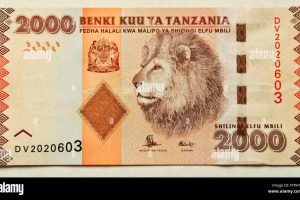
What Kombe’s saying about Business Regulations.
This paper seeks to explain how Business Regulations are barriers to business and economy growth. Most of the countries, especially the developing one’s have failed to improve their Economic growth despite countless efforts carried out by these countries. Complex Business regulation is among the hurdles that make business activities and economic growth in many countries to lag. This paper will describe the extent to which business regulations are barriers to business and economy growth.
Keywords: Business, Regulation, Economy, growth.
INTRODUCTION
Business regulation refers to the laws that control the manner that a business can operate. Business regulation may serve as a fuel to boost economic activities in the country if the regulations are moderate and not complex. However, if business regulations are too complex may lead to a decline in business activities and a decline in economic growth. The World Bank has been publishing “The Annual doing Business Report” to investigate and analyze the manner in which the Business regulations impact Business activities and economic growth. African countries, particularly the sub-Saharan countries have also tried their best to ensure a smooth and effective environment for minimizing business regulations to promote Economic growth, however business regulation is still a problem hindering Economic growth in most of the African countries. Sub-Saharan Africa leads with the highest number of Regulatory reforms captured by doing Business. Rwanda ranks among the best globally in Doing business area of registering property, where it takes 7 days t transfer property and cost only about 0.1% of property value, which is the same as in newzland(Doing Business, 2009)
Economy growth. This refers to the increase in the market value of all goods and services produced by an economy over time[1]. Economic growth is indicated by an Outward shift of its Production Possibility Curve (PPC). The economic growth of the country is measured by the Gross Domestic Product (GDP) or Gross National Product (GNP). There is a positive relationship between more business-friendly regulations and higher growth of the Economy. That is when the business regulations are friendly may cause the business activities in the country to flourish and consequently, this will lead to an increase in the rate of Economic growth in the country.
MAIN BODY
The following points explain how business regulations are barriers to Business and Economy Growth.
Business Regulation increases Compliance cost. Compliance cost refers to all the expenses that a firm incurs to adhere to industry regulations[2]. These cost increases as the regulations around the Business unit or Industry increases over time. The compliance costs however range from local to national regulations imposed to businesses. These costs make the firms or smallholders firms to incur more expenses in carrying out their activities as these costs infringes their profits especially for the small business holders. Excessive regulation in businesses limits economic growth as it will result to the decline in the business activities in the country. Example, the costs incurred in installing a new system required for the process and the expenses incurred in paying salaries to the people working in compliance.
Market distortion. Market distortion refers to the situation in which prices are determined by other factors apart from the market forces of demand and supply. Business regulation is the form of market distortion. The imposition of business regulation distorts the equilibrium hence causing the disequilibrium in the market forces of demand and supply, as a result supply may exceed demand or demand may exceed supply of which this may result into shortages or over production of goods.
Business regulation discourages Investment. A Friendly Investment climate in which firms operate stimulates economic growth as firms are provided with the incentives to invest and improve productivity (Bank, 2004)Investors can hardly invest in a country that has more business regulation. The decline in Investment will result into the fall in the income of the people, fall in the living standard of the people due to the increase in unemployment; this will eventually lead to lower per capita income and low Gross domestic Product (GDP).Example, environmental regulations may discourage the foreign Investors to invest in a particular country, this will lead to the fall in foreign Direct Investment (FDIs)
Business regulation discourages Entrepreneurs and small business holders. The roles of Entrepreneurs in enhancing business activities and promoting Economic growth cannot be underestimated. However, with more business regulations entrepreneurs may fail to carry out businesses due to the drawbacks resulted from business regulation. On the other hand the small business holders, the Small and medium sized enterprises (SMEs) plays a substantial role towards economic growth but many of them fail due to the imposition of excessive business regulations. Excess business regulation may lead to decline in small businesses that don’t have the resources to comply with complex regulations. Example, Business regulations in obtaining permits and licenses discourages the small business holders; this will lower the economic growth of the country.
Business regulation discourages consumption. Consumption of goods and services is influenced by their respective prices. Consumers in some circumstances tend to consume less when the price of the commodities increases. Low consumption lowers demand for goods and services which in turn will make the producers to cut down production. This will limit the possibilities of the economy to grow as production depends on consumption. The imposition of regulations increases the cost of production which will make the producers to raise the price of the commodities.
Business Regulation limits the Expansion of Technology. The expansion and development of technology in a country depend on various aspects one of the aspects includes the rate of business regulation in a particular country. Higher rate of business regulations infringes the resources that might be used in the technological investment.
Regulation has an impact on a firm’s incentives to innovate and introduce new products and processes and hence on the pace of expansion of the technological frontier (Serven, 2010)
Business regulation affects firm’s productivity and turnover. Business regulation has effects on the output produced by firms or business units. Regulation changes the firm’s incentives to reduce slack and utilize factors more or less intensely (Serven, 2010). Regulation affects the firm’s turnover as it affects the firm’s production through firm’s entry and exists and the reallocation of resources from contracting and expanding firms.
CONCLUSION
There should be minimum business regulation both at national and International level. The governments, specifically from the developing countries, should make sure that the regulations imposed on business are not harming the performance of business and economic activities. Also, there should be special policies to protect the small businesses from the high and harmful regulations that may hinder their growth. The greater government efforts in researching and development will be fruitless if the rate of business regulation is not counter checked. Greater Government spending on Research and Development does not translate directly into new innovations. Scholars make clear that, given the changing nature of technology, states need to remain flexible in providing enough support to firms but not too much regulation (Sowers, 2010)




2 Comments
Wish to join the team, am from Uganda
Good presentation